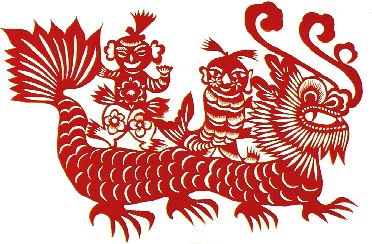 INTRODUCTION
INTRODUCTION
Gu Yao Yan 
(Traditional Chinese Ballads and Proverbs)
Proverbs are an important element in Chinese language and literature.
Often proverbs and common sayings are quoted in daily conversation and the
former are incorporated frequently in Chinese poetry and essays. Thus the
study of Chinese proverbs and ballads is a good starting point for
understanding not only the mind of the Chinese people but also the
philosophical background of their culture.
GuYaoYan is a collection of Chinese ballads and proverbs
dating from ShangGu (perhaps as early as seventeenth century BC) to the
Ming dynasty (1368-1644). The collection was compiled and annotated by
Du WenLan  (1815-1881) who lived in the Qing
Dynasty (1644-1911). Du selected over three thousand proverbs and
ballads from over eight hundred titles with historical and literary
significance, including ShangShu (the Book of Documents),
ChunQiu (the Annals of Spring & Autumn), LunYu
(the Analects), ShiJi (the Records of History).
(1815-1881) who lived in the Qing
Dynasty (1644-1911). Du selected over three thousand proverbs and
ballads from over eight hundred titles with historical and literary
significance, including ShangShu (the Book of Documents),
ChunQiu (the Annals of Spring & Autumn), LunYu
(the Analects), ShiJi (the Records of History).
The anthology contains one hundred chapters arranged in the traditional
Chinese subject classifications : Jing (Classics), Shi (History),
Zi (Humanities, Social Sciences, Sciences), and Ji (Anthology). The
final chapter is devoted to interpretations of Yao (Ballad) and
Yan (Proverb) by various writers.
|| Acknowledgements
|| Notes
|| Text
|| Search ||

Chinese Text Initiative Home Page
 (1815-1881) who lived in the Qing
Dynasty (1644-1911). Du selected over three thousand proverbs and
ballads from over eight hundred titles with historical and literary
significance, including ShangShu (the Book of Documents),
ChunQiu (the Annals of Spring & Autumn), LunYu
(the Analects), ShiJi (the Records of History).
(1815-1881) who lived in the Qing
Dynasty (1644-1911). Du selected over three thousand proverbs and
ballads from over eight hundred titles with historical and literary
significance, including ShangShu (the Book of Documents),
ChunQiu (the Annals of Spring & Autumn), LunYu
(the Analects), ShiJi (the Records of History).
 INTRODUCTION
INTRODUCTION

